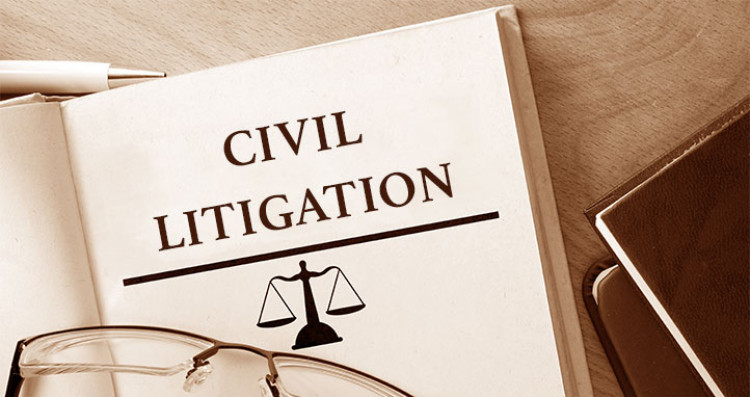Injunctions, Interim Orders, Anton Pillar Orders
Published on 12th May, 2017 by Mark Lee

Injunctions, Interim Orders, Anton Pillar Orders
Interlocutory Applications
In our previous article, we explained that the duration between the time from when a party first commences Court proceedings (i.e. the filing of the Writ of Summons) to the time that the matter is eventually heard by a Judge at trial is by no means insignificant.
In this article, therefore, we explore various avenues open to parties of a Court proceeding to make, often on an urgent basis, formal applications to Court to prohibit or compel certain actions be taken by the opposing party even before the matter is finally heard at trial.
One of the rationales for availing such avenues to parties is the acknowledgment that, pending the conclusion of the dispute at trial, one party may be unfairly subject to suffer continued losses / damages if the other party is allowed to persist in committing a certain act or is not refrained from doing so.
Illustration - Context
For instance, in restraint of trade cases, Company “A” would be suing ex-employee “B” for breaching his/her agreement to not compete with A after leaving the employ of A. In the typical paradigm, B will be contesting the validity of the restraint of trade clause.
In such circumstances, A may consider applying for an interlocutory injunction pending the trial; which would temporarily prohibit B from competing with A until the Court can determine whether or not the restraint of trade clause is indeed valid.
Likewise, for defamation cases, pending the trial, the party being defamed may apply for an interlocutory injunction to prohibit the other party from continuing to publish the alleged defamatory material pending the Court’s final determination at trial.
Interlocutory Applications
At any stage of the proceedings, it may be necessary and/or appropriate for a litigant to apply to court for the following Court orders directing the other party to do or refrain from doing something until the trial of the action, including but not limited to:-
a) Interlocutory Injunction – a Court order that mandates a party to do something or refrain from doing something. To obtain the injunction, the applicant must show that there is a serious question to be tried with a real prospect of success, and that the balance of convenience lies in favour of granting the injunction.
b) Mareva Injunction – a Court order to freeze the other party’s assets. Designed to prevent parties from taking steps to deliberately frustrate the orders of the Court by dissipating assets (either locally or worldwide) in order to avoid the risk of having to satisfy any judgment which may be entered against them in the proceedings.
i. Domestic Mareva Injunction. To obtain a domestic injunction, the plaintiff must show that he has a good arguable case against the defendant, the defendant has assets within jurisdiction, and there is a real risk of dissipation of assets from the jurisdiction which would render judgment obtained in the proceedings nugatory.
ii. Worldwide Mareva Injunction. The same principles apply in the case of a worldwide Mareva injunction, except that insofar as the defendant’s assets within jurisdiction are concerned, the plaintiff will have to show that there are no and/or insufficient assets within jurisdiction to satisfy the claim and that there are assets outside the jurisdiction.
d) Anton Piller Order – a Court order to prevent a defendant from destroying incriminating evidence by permitting certain persons to enter his premises to search for, seize and retain documents or other items. Such an application is made without notice. Four tests must be satisfied before a Anton Piller order will be granted:-
i. Whether the plaintiff has shown that it has an extremely strong prima facie case.
ii. Whether the damage suffered by the plaintiff would have been very serious.
iii. Whether there was a real possibility that the defendants would destroy relevant documents.
iv. Whether the effect of the Anton Piller order would be out of proportion to the legitimate object of the order.
Worldwide Mareva Injunction – Risk of Dissipation of Assets
(Bouvier, Yves Charles Edgar & Anor v Accent Delight International Ltd & Anor and another appeal [2015] SGCA 45)
In this case, the Singapore Court of Appeal compared Mareva Injunctions to “nuclear weapons” of civil litigation and advocated the judicious use of such remedies.
This is even more so for a worldwide Mareva Injunction where the Court of Appeal cautioned as follows; “The reach of such an injunction, stretching far beyond the geographical confines of the jurisdiction of the court making the order, is such that it can have a crippling effect on those against whom it is directed. This underscores the need to scrutinise the basis for such an injunction with utmost care.”
On the facts of this particular case, the Court of Appeal had in fact set aside / discharge a worldwide Mareva Injunction that had already been ordered against the appellants at the lower Court.
Amongst other issues, the Court of Appeal focused their analysis on whether there was a real risk of dissipation of assets, i.e. “there must be some "solid evidence" to demonstrate the risk, and not just bare assertions to that effect”.
Specifically, the Court of Appeal had this to say: “it is necessary to go further and inquire into the nature of the dishonesty that is alleged. As we see it, the nature of the dishonesty that is alleged against Mr Bouvier is not such that it can in itself fairly ground an inference of a real risk of dissipation.”
For enquiries, you may contact our directors below:-
Mark Lee
Email: mark.lee@wmhlaw.com.sg
Profile: http://www.wmhlaw.com.sg/core-team/mark-lee
Wilbur Lim
Email: wilbur.lim@wmhlaw.com.sg
Profile: http://www.wmhlaw.com.sg/core-team/wilbur-lim
For full article, please download the PDF below.
